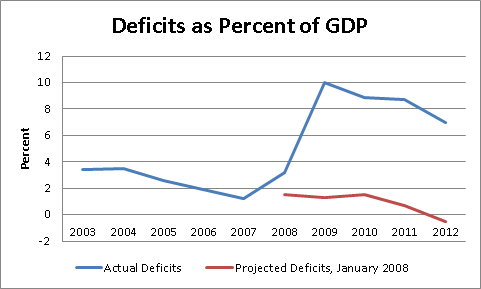December 04, 2012
Washington Post columnist Charles Lane is angry with Ben Bernanke and the Federal Reserve Board. He is upset because the Fed is not working to advance his agenda of cutting Social Security and Medicare by raising interest rates and putting more pressure on Congress.
Lane tells readers:
“With the U.S. economy still reeling from the Great Recession, the Fed has been trying to stimulate economic growth by holding down interest rates, and it has pledged to keep doing so through mid-2015. It does this in large part by buying up government debt. Partly as a result, the United States was able to issue $4 trillion in new debt from 2009 through 2011, while keeping net interest costs at or below 1.5 percent of gross domestic product.
“It’s perfectly consistent with the Fed’s mandate. And it sounds like a great deal for the government, too. According to more than a few economists, pundits and politicians, Congress should seize the opportunity to borrow and spend on growth-enhancing investments such as infrastructure.
“However, in a properly functioning economy, rising government borrowing costs can play a useful role: Specifically, they are the market’s way of warning government that its debts are unsustainable.
Muffle that signal, as the Fed’s policy is doing now, and politicians are less able to guess right about how much time they really have to fix fiscal policy and to feel less pressure to do so.”
Actually the market is doing exactly what it is supposed to be doing. Interest rates are extraordinarily low now because of the massive amount of excess resources in the economy. The low interest rates are a way to encourage spending. In fact, if anything the goal would be to have lower real interest rates, but this can only be done by having a higher rate of inflation.
Lane is upset that the markets don’t seem to accept his view that budget deficits are unsustainable. Of course the only reason that budget deficits are large today is because the economy collapsed. In 2008, before it recognized the hit to the economy caused by the collapse of the housing bubble, the Congressional Budget Office projected that deficits would be less than 2.0 percent of GDP through the middle of the decade even without the expiration of the Bush tax cuts.

Source: Congressional Budget Office.
In short, the real story here is that Charles Lane is unhappy that the financial markets and the Fed won’t join in his drive to cut Social Security and Medicare.







Comments